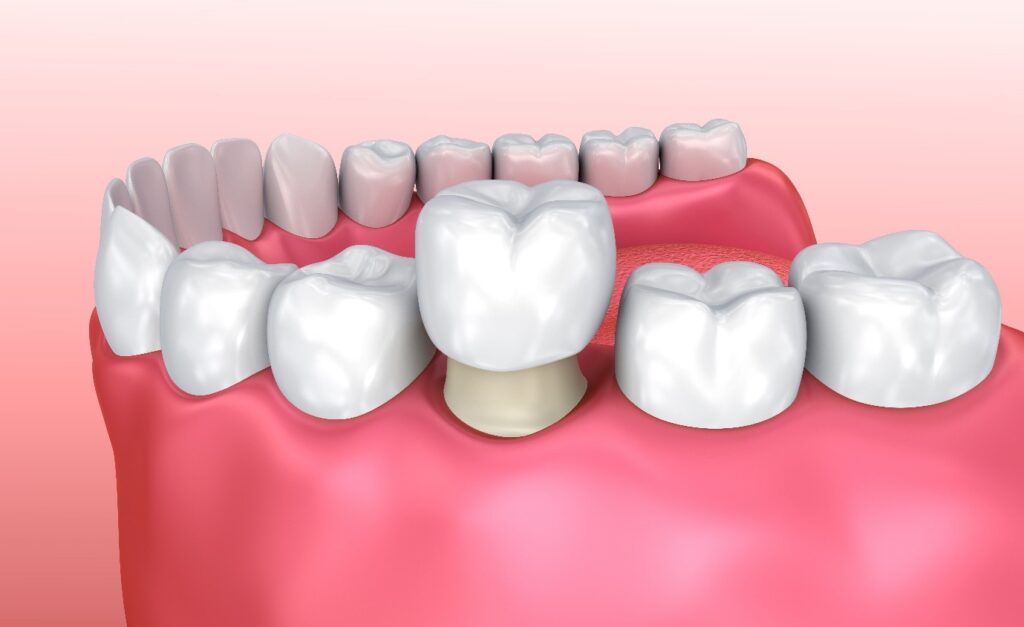Dental crowns are essential for restoring and protecting damaged teeth.
They act as a protective cap that thoroughly encloses the visible part of the tooth, providing both functional and cosmetic benefits.
Why Do You Need a Dental Crown?
A dental crown might be necessary for various reasons:
- Protecting Weak Teeth: Teeth weakened by decay or cracks can be strengthened and protected with crowns.
- Restoring Broken or Worn Teeth: Crowns restore teeth that are broken or severely worn down, enabling normal function.
- Supporting Large Fillings: When a tooth lacks sufficient natural structure after a large filling, a crown offers additional support.
- Cosmetic Enhancement: Crowns cover misshapen or discolored teeth, significantly improving their appearance.
- Covering Implants or Holding Bridges: Crowns are placed on dental implants and help secure bridges, completing the restoration.
What are the Types of Dental Crowns
Several types of crowns are available based on material and function:
- Stainless Steel: Often used as temporary crowns, especially for children’s baby teeth, protecting them until they naturally fall out.
- Metal Crowns: Constructed from gold or metal alloys, these crowns are highly durable and ideal for molars but are less commonly chosen due to their metallic appearance.
- Porcelain-Fused-to-Metal: These crowns combine strength and a natural look.
- All-porcelain or All-Ceramic: These provide the most natural appearance, especially for front teeth, and are suitable for people with metal allergies.
- All-Resin: A less costly option, but less durable, prone to fractures, and not as long-lasting as other materials.
What is the Procedure: How Are Dental Crowns Applied?
Getting a dental crown generally involves two visits:
Tooth Preparation: In the first visit, the dentist examines the tooth, takes X-rays if necessary, and reshapes the tooth by removing enamel to fit the crown. If the tooth is damaged, filling material is used to rebuild it. Impressions or scans are then taken to create the custom crown. A temporary crown safeguards the tooth while the permanent one is fabricated.
Crown Placement: On the second visit, the dentist takes off the temporary crown and installs the permanent one They assess the fit and color, and once everything is correct, the permanent crown is securely cemented in place.
How Long Do Crowns Last?
The lifespan of a dental crown ranges from 5 to 15 years, depending on the material and care. Habits, like
- Teeth grinding
- Chewing ice
- Biting hard objects
can shorten the life of a crown.
Maintaining good oral hygiene and attending regular dental appointments are vital for preserving the health of the crown and the natural tooth underneath.
How to Care for and Maintain Dental Crowns
While crowns don’t require special care, maintaining a regular oral hygiene routine is essential.
Brush at least twice daily, floss around the crown to prevent decay, and Refrain from Using your teeth to tear open packages or chew on hard items.
Regular dental visits will help monitor the crown’s condition and prevent any issues from developing.
If you’re considering a dental crown, consult your dentist to discuss the optimal solutions for enhancing both the functionality and aesthetics of your smile.


